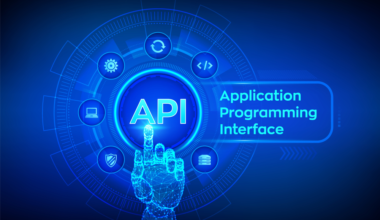Introduction
Significant progress has been made in the field of generative AI, as artificial intelligence keeps expanding. Microsoft Copilot, a code assistance tool for teamwork based on OpenAI’s Codex, is spearheading this change. Concerns have been raised concerning the security of the data that Copilot generates, despite offering the best coding support and efficiency currently available. In this blog post, I’ll talk about the importance of generative AI security and how to minimize the risk of Microsoft Copilot data leaks.
Understanding Microsoft Copilot
Microsoft Copilot is an AI-driven coding assistant designed to help engineers write code more quickly. It was developed in collaboration with OpenAI. It speeds up and increases productivity during the coding process by using machine learning models to provide real-time code suggestions. Because of its understanding of syntax, context, and code organization, Copilot is a powerful tool for developers working in a range of disciplines.
The Security Implications
Despite the fact that Microsoft Copilot offers a robust and state-of-the-art coding experience, it is imperative to handle any security risks associated with the generation of sensitive data. Developers frequently work with proprietary or sensitive code, and any unintentional exposure of this information could have detrimental effects. It is crucial to acknowledge and lessen these risks in order for generative AI technologies to be used sensibly and safely.
Preventing Data Exposure
Code Review and Scrubbing:
Regular code reviews significantly assist in identifying and mitigating security threats. The code that Microsoft Copilot generates should be closely examined by developers to ensure that no sensitive information is inadvertently disclosed. Scrubbing code for sensitive data using automated tools is another way to improve security.

Context-Aware Filtering:
Increasing the context-awareness of Copilot’s filtering techniques could potentially prevent the generation of code snippets that inadvertently expose sensitive data. Developers can reduce the risk of data exposure by optimizing the algorithms that produce code recommendations based on project specifications.
User Education and Awareness:
By adding context awareness to Copilot’s filtering techniques, it might be possible to prevent the generation of code snippets that inadvertently expose sensitive information. By refining the algorithms that produce code recommendations based on project specifics, developers can reduce the likelihood of data exposure.
Secure by Design:
The development of generative AI tools must take security precautions into account. Strong security feature implementation in Copilot should be Microsoft and OpenAI’s top priority in order to prevent unintentional data exposure. This includes access controls, encryption, and other security measures to protect generated code.
Opt-In Privacy Controls:
Allowing developers to modify the privacy settings and opt-in controls will give them more influence over Microsoft Copilot’s behavior. As a result, users can alter the AI assistant’s suggestions to fit their project requirements and security requirements.
Conclusion
As the field of generative AI advances, maintaining the security of programs such as Microsoft Copilot is imperative. Developers, organizations, and AI developers must work together to strengthen security protocols, stop unintentional data exposure, and promote the moral application of AI. By putting in place robust security procedures, user controls, and education, we can benefit from generative AI’s advantages while lowering the risks that come with it. This will contribute to the future development of a secure and imaginative coding environment.






